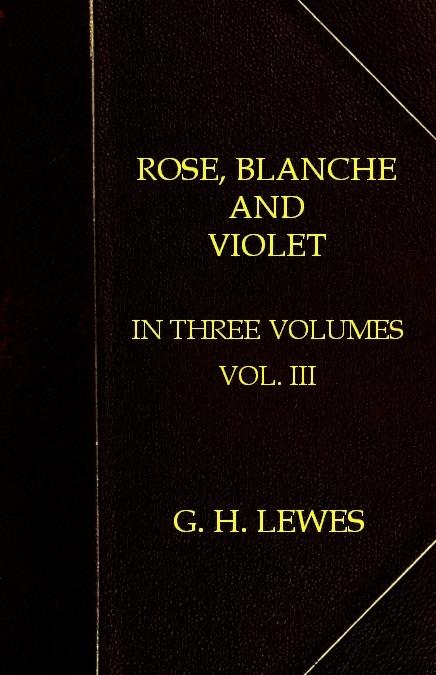https://ebookmass.com/product/the-ghost-orchid-
More products digital (pdf, epub, mobi) instant download maybe you interests ...
Conn’s Current Therapy 2020 Rick Kellerman
https://ebookmass.com/product/conns-current-therapy-2020-rickkellerman/
The Ghost of Stormer Hill Craig Wallwork
https://ebookmass.com/product/the-ghost-of-stormer-hill-craigwallwork/
The Ghost of Stormer Hill Craig Wallwork
https://ebookmass.com/product/the-ghost-of-stormer-hill-craigwallwork-2/
Gilded Ghost (The Ripple System Book 3) Kyle Kirrin & Portal Books
https://ebookmass.com/product/gilded-ghost-the-ripple-systembook-3-kyle-kirrin-portal-books/
Conn's Current Therapy 2021 Rick D. Kellerman
https://ebookmass.com/product/conns-current-therapy-2021-rick-dkellerman/
Conn’s Current Therapy 2019 Rick D. Kellerman & David
Rakel
https://ebookmass.com/product/conns-current-therapy-2019-rick-dkellerman-david-rakel/
Not A Ghost (The Eidolon Chronicles Book 2) Auryn
Hadley
https://ebookmass.com/product/not-a-ghost-the-eidolon-chroniclesbook-2-auryn-hadley/
Ghost Dick; A Port Canyon Chronicle Kincaid
https://ebookmass.com/product/ghost-dick-a-port-canyon-chroniclekincaid/
Duty (Ghost Squad Book 2) Lilith Saintcrow
https://ebookmass.com/product/duty-ghost-squad-book-2-lilithsaintcrow/
The Ghost Orchid isaworkoffiction Names,characters,places,andincidentsaretheproductsoftheauthor’simaginationorareusedfictitiously Anyresemblanceto actualevents,locales,orpersons,livingordead,isentirelycoincidental
Copyright©2024byJonathanKellerman Allrightsreserved
PublishedintheUnitedStatesbyBallantineBooks,animprintofRandomHouse,adivisionofPenguinRandomHouseLLC,NewYork
B
andtheHOUSE colophonareregisteredtrademarksofPenguinRandomHouseLLC
HardbackISBN 9780593497678
EbookISBN 9780593497685
randomhousebookscom
Coverdesign:DerekWalls
Coverimages:©RadoslawLecyk/Shutterstock(cityscape),©MasterfileRoyaltyFree(houseandpool),©KK.KICKIN/Shutterstock(starrysky)
ALLANTINE
Chapter37
Chapter38
Chapter39
Chapter40
Chapter41
Chapter42
Chapter43
Chapter44
Chapter45
Chapter46
Chapter47
Chapter48
Chapter49
Chapter50
CHAPTER 1
Nearlygettingkilledcanchangeyourlifeininterestingways.
There’s the physical healing, butthat’s tedious to thinkabout Whatfascinates me is how people behave when theyknowyou’vecomeclosetodeath
Someyouhaven’theardfrominawhilegetintouchoutofobligation.Mostofthetimetheyhavenoideawhattosayor doandyouendupassuringthemyou’refineandtryingtomakethemfeel better.Or maybethatwas justme,revertingtothe psychologist’srole
I’mclosetoonlytwopeopleontheplanet.
ThewomanIlivewithhandledthewholethingbeautifully,pullingofftheperfectbalanceofcaringformeandallowing mespacewhenIneededit Evenmoreimpressively,whenRobinallowedherselftogetangryatmeforbeingindangerinthe firstplace,shewasabletotalkaboutitreasonably.
My best friend, a homicide detective, was overcome with guilt. I’d been working with Milo when a lunatic nearly crushedmetodeath Noone’sfault,reasonableprecautionshadbeentaken Justoneofthosethingsthathappen But,still
He’d worked hard at keepingthe guilt incheckbut I could tell. Our conversations beganebbinginto longsilences, terminatingwhenhetoldmeIneededtorest.
Eventually, his visits tapered off, thoughhe tried to keep up withregular phone calls. But he avoided talkingabout work,whichpepperedthecallswithawkwardsilences
Worstofall,hestoppedcallingmeinoncases.The“differentones”wherehetendstooverestimatemytalent.WhenI broughtupthesubject,heclaimedthetwonewmurdershe’dtakenonwereopenandshut.
Four monthsafter beinginjuredIsatwithRobinonthesecond-storyterracethatfrontsour house,eatinganddrinking andenjoyingtheweatherthatkeepspeopleinL.A.,andsaid,“StillnothingfromBigGuy.”
Shesaid,“Canyoublamehim?”
“Ithinkhe’soverdoingit Objectively,hedidnothingwrong”
“Who’severobjective,Alex?”
IpouredmyselfanotherfingerofChivas thepriceygoldstuffI’dneverbuyformyself.AguiltofferingfromMilo.
NeitherofustalkedforawhileandIresumedrubbingthebig,knobbyheadofourlittleblondFrenchbulldog,Blanche She’salsobeenperfect SittingnexttomeasIknitted,silentandpatient,carefulnottotouchthetornmusclesinmychest She’s alwaysbeenawonderfulcompanion,intuitive,perceptive,morekeyedintononverbalcuesthananyhumancouldhopetobe. Butthiswasmore.Sheknewsomethingwasdifferentandshecared.
Robinsaid,“Allthosecustodycasescameinbutyou’restillbored”
“Icouldusesomevariety.”
“Knowwhatyoumean.”
Thatsurprisedme
She said, “Why do you think I do what I do, baby? Every instrument’s different, it’s not like I’mmaking the same armchairoverandover.”
Isaid,“Soyouwouldn’tmindifIdiversified Maybegotintomacramé?”
Shegrinnedandplacedhersmall,stronghandovermine Herhair’sthick,auburn,andcurlyandwhenshe’snotinher studio,shewearsitloosetothemidpointofherback.Tonight,themoonwasmediumstrengthanditgildedallthosecurlsand limnedherovalface,herpointychin.Theslightlyoversizedmilk-whiteincisorsthathadattractedmeinthefirstplace.
“WouldIpreferifyounevergotinvolvedinalltheuglystuff?Partofmewould ButI’dbelivingwithaveryunhappy man.”
“Unhappyfool.”
Shelaughed “Don’ttemptme Anyway,I’msurehe’llcallwhenhereallyneedsyou” “I’mnot.”
She poured herselfanother halfglass ofZinfandel. Daintilypolished offa stuffed grape leaf. Greektakeout, tonight. Blanchehadscoredbitsofriceandlamb Everyonehappy
Exceptme.I’dbeenfakingserenityforawhile,hadneverstoppedfeelingincomplete. Ittookanothertwoweeksforthattofinallychange.
CHAPTER 2
The call came in at nine a.m. on a glorious Sunday. The familiar voice, tight with battle readiness but tinged with uncertainty
“Tooearlyforyou?”
“No,beenupforawhile.”
“Howyoufeeling?”
“Great”
“Well…I’vegotone,beenheresinceseventhirty,Ifiguredmaybe…” “Sure.”
“Also,”hesaid,“notfarfromyou Ifyou’refeelingupforit Backintheolddaysyouprobablycouldarunoverhere” Isaid,“Givemetheaddress.”
ThetripwasfourpointeightmilesfrommyhouseinBeverlyGlen AfeasiblerunBC beforecrushing buteventhenI’d havedrivenbecauseIliketogettoscenesfast.
IwheeledtheSevilledownthenameless former bridlepaththatwinds downtreacherouslyfromour halfacre,drove southonBeverlyGlenpasttheskinnychockablockhousesthatlinetheroadinourneighborhood,andtransitionedtothegrand estatesjustnorthofSunsetBoulevard.
At Sunset Ihooked right and continued to the westerngate ofBel Air, sped up Bellagio Road before turningonto a seriesofserpentinesidestreets Reversingtheprocess:eight-figurepalacesfollowedbyprogressivelymoremodesthouseson limitedwoodsylots.
Everycrimescene’suniquebutthere’salsoasamenesstothem.Theprocedures,theactivitiesofthosewho’vechosen toworkwithworst-casescenarios.Theemotionaltone.
The first thing you see is what I’ve come to think of as Death’s Parking Lot: detectives’ unmarked sedans, patrol cruisers,cryptvans,hybridcompactsdrivenbycoroner’sinvestigators.
Behindallthat,theinevitableyellowtape.Canary-brightandsadderforthat.
Thiswasmyfirstcrimesceneinfour-plusmonthsandsimplyarrivingtweakedmybrainandmademefeel alive No pointwonderingwhatthatsaidaboutme.Iwasimagining,wondering,laseringthelayout.
Thislotwassothicklywoodedthatnostructurewasvisiblefromthestreet.Totherightofthevehicles,aburlyyoung officerstoodguard Thefoliagehidneighboringproperties,aswell,creatinganillusionofforest Cruellypeaceful.
Usually,MiloinformsthecopsthatI’mcomingandtheyliftuptheyellowstrand Sometimestheyevensmileandwelcomeme byname.
ThistimeIhadtoshowmyI.D.toBurly,wholookedtobeallergictosmiling.
Heexaminedmydriver’s licenseas ifitwerewritteninhieroglyphics,re-read,checkedmeoutsquint-eyed,stepped awayandmadeacall.Returning,hefavoredmewithalemon-suckingfrown,said,“Okay,”reluctantly,andleftmetoliftmy owndamntape.
Tryingnottoreadtoomuchintoanyofit,Iduckedunderandpickedupmypace,ignoringthetwingesinmyribsthat followedeachfootfall.
Aimingmyselftowardtheolddays.
Theforestturnedouttobelittlemorethanapoorlytrimmedamalgamofficusandeugeniabackedbyhuge,shaggysilverdollar eucalyptus Decadesago,aplaguehadkilledoffmostoftheeugeniahedgesinSouthernCaliforniabutafewsurvivorsremain Theficustack-onsaidsomeonehadsettledforaquickfixinlieuofre-landscaping
Gettingpastthegreenerylandedmeinfrontofasmall,flatlawnfrontingaone-story,cedar-sidedranchhouse.
Ina suburbansetting,another datedsixties throwback.InBel Air,five millionbucks ifyouhiredthe rightreal estate agent
Asecondtapebarrierranacrossthefrontdoor.AblackMaseraticonvertiblesatinagraveldrivewaytotheleftofthe house. Newer model, the name of a Beverly Hills dealer framing the license plate. Littered with dust and leaves. Tennis racquetandballsonthepassengerseat
Whenthedrivewayreachedthehouse,itconvertedtoconcreteandcontinued,ungated,towardtherearoftheproperty. Theonlyfeasibleentrythismorning.Iwalkedalongthehouse.Thoughtabouteasyaccesstoakiller.
NosignofMilooranyoneelseuntilIreachedtheendofthedriveandturnedrightandtherehewasalongwithapairof techs,aC.I.,andhalfadozenuniformswithnothingtodobutlookofficial.
Milo looked the same; why wouldn’t he? Tall, mastiff-jowled, top-heavy above oddly thin legs, he wore wrinkled khakis,pink-soleddesertboots,a spinach-greensportcoat,a white wash’n’wear shirtwitha defeatedcollar,anda skinny blacktiepatternedwithsomethinghardtomakeout
Sunlight waged a full-on assault on his pale, pocked face, having its way with every pit and lump. His black hair, slickeddownhoursago,hadrebelledandbristled.Alimpflapinfrontdiagonaledabrowthetextureofcottagecheese.
Hewasonhisphone,sawmeandnodded Grimly,Ithought Butmaybenot Whocared,anyway?He’dcalled Timeto focusandnotgetsidetracked.
Igotclose enoughto see the tie pattern. Goose heads. Rows ofbeaks pointingto the right. He clicked offand said, “Thanksforcoming”
Likethere’dbeenadoubt.
Isaid,“What’sgoingon?”
Insteadofexplaining,hewavedexpansively Check it out
Notmuchmoretothebackyardthanakidney-shapedswimmingpoolandconcretedeck.Small,cup-shapedspaatthefrontof thepool
Afewfeetfromwherewewerestanding,anakedmanlayfacingthesky.Asinglesizablecrustedholedottedtheupper leftquadrantofhis chest.Bloodspideredfromthewound,runningdownfromlefttorightandcollectingontheground.The flowdictatedbythebody’sslightrightwardcant
Nopositioning Shotandlefttodrop
Thebloodonthedeckhadpooledtoanamoeboidblotcongealedandturnedrustywithlingeringscarlethighlights.The man’sskinwasgray,withfaintpinktracesoflividityvisiblebeneathhisleftbuttocksandthigh.NorigorordecompositionI couldsee
“Isthepoolheated?”
“ThepoolandtheJacuzzi.”
Last night’s temperature had floated in the mid-sixties Warm enough for a swim but cool enough to slow down breakdown.Weatherandexertioncould’vehastenedmusclestiffeningandcausedittofademorequickly.Ifrigorhadcomeand gone,deathhadoccurredsometimelateatnightorduringtheearliestmorninghours.
Eitherway,inthedarkness
Partialdarkness;apairofoutdoorfixturesjustbelowthehouse’sraingutterwerestillonandsowasalightinthepool
Thebodylayfivefeetorsofromarearbankofslidingglassdoors Onepanelwasopen
Stepping out of his home into the warm night air and…
Somethingsmallhadbeenyellow-taggedtotheleftofthecorpse.Ibentandtookalook.Unrolledcondom.
Steppingoutintothecharitablenightair,readyforfun
He was young, late twenties or earlythirties, witha blackbuzzcutand a three-daybeard the same color. Midsized, lean,muscularwithalongchiseledfacecenteredbyastrong,slightlyhookednose.Hispanic,Mediterranean,orMideastern.
Rose-vinetattooaroundhisleftankle
Helayflatonhisback,mouthopen,eyespartiallyshut,whatwasvisibleofthesclera,darkbrown.
Ablackterryrobehadbeentossedcarelesslyoverachaiseloungechairthatfacedthepool.Nexttotheloungeatable held two crystal highball glasses, a bottle of Campari, an ice bucket half filled with water, and two cans of Pellegrino Abuttingthecans,adishofsmall,ocherolives.Theabsenceofpitssaiduntasted.
Beyondallthat,anakedwomanoccupiedanidenticallounge.
Proneandshotinexactlythesamespot,headfacingleft,rightarmdangling.
Abitolderthanhercompanion fortyish shewasequallytrimwithcrispangularfeaturesandthekindofsymmetrical beautythatcameras love. Blood ofthe same color and consistencystriped her leftbreastand ranonto the chair, whichwas somesortofwovenvinyl.Spacesbetweentheweaveallowedtherustyclottosettleonthedeckbelow.
Her thickmahoganyhair was scrunched up ina highpony Her fingernails were polished pink, her toenails black A blackrobeidenticaltohercompanion’swasdrapedneatlyoverthetopofathirdlounge.
NobodyinkIcouldsee;anyobviousadornmentcamefromthecarbonglintingonher lefthand: asizablerectangular diamondringaboveapavéweddingband
Holesinherearlobesbutnoearrings.
Itookinthe restofthe layout. Afew leaves floated onthe pool surface. Onlya few, because unlike the frontofthe property,thesliverofspacewasconcrete,muchofitcracked Itbuttedupagainstten-footredwoodfencingthatcontinuedon bothsides Severalfeetbehindthebackfence,massive,bushypodocarpusassertedthemselves Layersofthem,fromthenearblackdensity.They’recleantreesbutslow-growing.Thesehadtostretchbackdecades.
Isaid,“Wholivesoverthere?”
Milowassurprisedbythequestion “Noidea,Alicia’scanvassing Anythingrighthereintrigueyou?”
Itookacloserlookatbothbodiesandafewoftheuniformstookcloserlooksatme.“Bigholes.A.38orlarger?”
Hestrodetothenorthernfenceandpointedoutasplintereddivotinaplank.“Pulledoutabullet,nocasings,mashedup butlookslikea 38”
“Arevolver…there’saprecisefeeltoit.Confidencethatoneshotwouldtakecareofbusinessandpinpointaccuracy. Where’stheotherbullet?”
“Still inside her,” he said “The backofthe chair blockedexit,it’s wedgedupagainstthe plastic” Shakinghis head “Miraclefiber,whoknew”
“Whofoundthebodies?”
“Poolguyatsixforty-five.Hecomestwiceamonth,thisisthefirststoponhisroute,he’scarefultobequiet.Sayswith no plants it’s an easy job, he’s in and out, has never actually seen or spoken to anyone, his company handles all the arrangements.”
Hetappedhisfoot.“Howdoyouseeithappening?”
“Myguesswouldbehegotshotfirst”
“Mine,too.Subduinghimfirstwouldbesafer.”
“His positionsuggests he’d gone inside, maybe for the condom, reemerged and was confronted. The killer could’ve beenconcealedatthesideofthehouseandstillhadanobliqueviewoftheyard Whattimedoyoufigureithappened?”
“C.I.guesstimateseightp.m.totwoa.m.,doubtsthepathologistwillbeabletonarrowitmuch.”
“Norigor.”
“TherewassomewhenIgotherebutitfadedsoonafter,soI’mfiguringontheearlierend.” Isaid,“Eitherway,itwasdarkandtheywerepreoccupiedandlesslikelytonoticeanintruder Hewaiteduntilthetime wasright afterthemalevictimsteppedout cameforward,andpulledoffaquickshottocentermass.Shewasrelaxingin thechaise,nakedandvulnerable.Shefroze,theshooterwalkeduptoherandfinishedwhathe’dcometodo.Iaskedaboutthe neighborsbecauseifit’salsoasmallproperty,someonemight’veheardthegungooff”
“No911calls,butwe’llcheckitout” “Herringissizablebutitwasn’ttaken.Anythingliftedfromthehouse?” “Nothingobvious.Wanttoseeforyourself?”
Withoutwaitingforananswer,heglovedup,handedmeapair,turnedandledmethroughtheopenglassdoor
CHAPTER 3
Inside,thehousewassmallandboxywithanL-shapedlivingareafeedingtoawhite-on-whitekitchenononeside,abrief hallwayontheother Pink-beigetilecoveredeverysquareinchoffloor Thefurniturewassomberandangular:graytweed stools pushed against a breakfast bar, three-piece sectional ofthe same fabric, two blackleather deco-revival chairs, three occasionaltablesfashionedfromacharcoal-tintedresin.
Whitewallsweremostlyblank,exceptforafewoftheinoffensiveabstractprintsyouseeinchainhotels.Asixty-fiveinchflat-screenfacedthelongarmofthesectional OnthefloorbeneaththeTVsatapairofsquatlittleSonosspeakers No attempttohidewires.
Isaid,“Notmuchpersonalinvestment.Arental?”
Milosaid,“You’reonaroll Foundtheleaseinanightstandalongwiththeguy’s walletandanItalianpassport”He consultedhispad.“GiovanniAggiunta,twenty-nineafewmonthsago.”
Hespelledthesurname.“Inanswertoyournextquestion,don’tknowanythingabouthimyet.”
Ilookedaround “Don’tseeanysignofdisturbance”
Hepointedtothehallway,leftmetofollow.Onedoortotheright,ontheleftanondescriptbeigebathroomfollowedby anondescriptbeigebedroom.
Giovanni Aggiunta’s sleeping chamber featured the same tile floor. A pair of windows facing the backyard were blockedbyaccordionshades Iliftedafewpleatsoneach Bothcasementswereshuttightandheldfastbylatches
Not even cheap art in here, no chest or dresser, the only furniture a pair of chromium-legged black marble circles servingasnightstands.Rust-speckedchrome.I’dseenbudgethotelsgivenmoreconsideration.
Apairofwidedoubledoorstookupmostofthefacingwall
Milopointedtothebed.“GuessthiscouldtechnicallybecountedasdisturbancebutnotthetypeI’minterestedin.”
Theking-sizedmattresswasmadeupwithplum-coloredsheetsandpillowsthathadseenrecentuse.Thepillowswere bunchedupagainstablacklacquerheadboard Acorneroffittedsheethadcomeuntucked,exposingthemattresspad Atthe footofthebed,aquilted,purple-brownsilkspreadhumpedwhereithadn’ttrailedtothefloor.
Onthefloor,neatlyarrangedafew feetfromthebed,wereapinkvelour joggingsuit,paddedmini-socks,black-andpinkAsicsrunningshoes
The nearer stand hosted a matte-grayvibrator, a boxofESPcondoms, a jar ofNivea crème, and a vial ofsomething calledSweetTouchLoveOil. Onthefartherstand,apinkleatherfannypack.
Next to the packwere a diamond tennis bracelet and matchinganklet, a platinumcocktail ringset withtwo serious diamonds and anevenlarger sapphire, and offto one side, a simple chainnecklace setwitha small purplishamethyst The necklaceseemedmarkedlylower-caliber.Maybesentimentalvalue.
Milosaid,“Noreasontogoforsmallstuffwhenthiswasinplainsightbutdoesn’tlookasiftherewaseveralaptopor adesktop,justthattabletinthelivingroom All that’sonitaretheappsitcamewithandonethatturnsitintoaremote No evidencethebadguyevercameinside.Somuchforclassicmotivenumberone.”
Heliftedthefannypack,tweezedoutthecontents,arrayedthemonthebed.
Three twenty-dollar bills folded inhalf, shinygold Gucci lipsticktube, brushed-gold container holdingone pointsix ounces ofGucci Guiltyperfume, the California driver’s license ofMeaginLea March, blond/blue, five-six, one thirty, DOB forty-oneyearsago.
Isaid,“Nophone?”
“Itwasonthestandnexttothejewelry,techiespulledupprintsonthecasesotheybaggedandtaggedbeforeIhada chancetoeyeball.Iaskedforacall-dumpandazipdrive.”
Ireadtheaddressonthelicense.GuaridaLane,90077.“RighthereinBelAir.”
“Littleunderamileandahalfsouthoverinthehigh-pricedspread” Isaid,“WhodrivestheMaserati?”
“TitledtoaleasingcompanyinthePalisades.SignorAggiuntagetstouseitfortwenty-fourmonths.”
“Soeitherhedroveherhereorshewalkedorjoggedover”
“Fresh-lookinggritinthesolesofherrunningshoessaysshe’sbeenusingthemsomewhererecently.”
Helookedattheclothingonthefloor,thentherumpledbed.“Physicalfitness.”
Isaid, “Bothofthemnaked andhimbringingoutthe condomsays theywere readyfor chapter two Wonder whyshe tookallherjewelryoffbutleftherweddingringson.”
“Iwonderedaboutit,too.Figuredmaybetheyweretootight.ButIcheckedandtheyweren’t.Somaybethatwaspartof thethrill.”
“Notthrillingforthehusband”
“Exactly. Classic motive number two. Once I’moutta here, learning about hubby is priority one.” He looked at his Timex.
“Jealousspouse,”Isaid “Couldturnouttobestraightforward”
Hecrossedhisfingers.
“WhatisityouthinkIcanhelpyouwith?”
“Nothingspecific,justspreadyouraura”
Thatsoundedliketokenismanditmademewonder.
Hesaid,“Anythingelseyouwannasee?”
Iopenedthedoubledoorstoagenerouscloset Hangingspacetotheleft,drawerstotheright
Milo said, “Beenthroughit, nothinginthe pockets exceptmore condoms Two packets for eachjacketand a couple moreboxesinthemedicinecabinet.Italiandesign,Swissmanufacture.Gluten-freeandvegan.” Ilaughed.
Hesaid,“I’mserious Andmaybethepoorguywasontosomethingbecausetherewasnothinginterestingmedicationwise.Guydidn’tevenseemtohaveheadaches.”
Iexaminedtheclothing.Notmuchquantitybutplentyofquality.
ThreeunstructuredBrunelloCucinelli cashmeresportcoatswerepairedwithbrightlycoloredslim-fitslacks,ablack calfskinjacketwascoupledwithblackStefanoRiccijeans.Noties,nodressshirtsbutforaPradawing-collarformalundera navy-bluetux.Bothcrispenoughtobeunused.Ahandwrittenreceiptonhigh-qualitypaperhangingfromabuttoninsidethetux jacketsupportedthat Handmadefor Sig G Aggiunta byatailorinMilan Thirty-fourhundredeuros
The drawers contained black T-shirts, mostly silk, a few linen and cotton; black silk bikini underwear, turtlenecks, cashmeresweaters,fittedpolosinthesamebrighthuesasthepants.
Incontrastwiththe limited displayoftextiles, shoes filled everyinchoffloor space and two upper shelves. Tennis shoesforexerciseandforshow,suededrivers,suppleloafers,wovenoxfords,glossywingtips,lace-upboots Fourpairsof Chelseaboots.Peanutbutterleather,grayleather,crocodile,ostrichhide.
Milosaid,“Maybemarriedwomenweren’thisonlyfetish.”
Ipointedtoamustard-coloredjacketcoupledwithscarletpants “Nosuits,whattheItalianscall spezzato ” “What?”
“Unmatchedcomponents.”
“Andyouknowthisbecause ”
“Evaluated a family originally fromRome a while back. The husband was into it, one point of contention was he wantedtodresshisten-year-oldsonthesameway.Thewifethoughtitwasvulgar.Likehim.”
Helookeddownathisowncontrastinggetup.
Isaid,“Aheadofyourtime”
“Livelongenough,everythingcomes’round.”
“Imentioneditbecauseapartfromnobusinesswear,histuxlooksunusedandhedoesn’townatie.Whateverhedoes tomakemoneydoesn’trequireformality”
“Maybehe’sCobblertotheStars sofar,haven’tfoundevidenceofanykindofjob”
“Theclothing’sexpensive,sohe’sgotanincomefromsomewhere.”
“Yeah,alligatorbootshavetocostthreefigures…poorlizard.Anythingelseyouwannacheckout?”
“What’sbehindthecloseddoor?”
“Nothing.Emptyspace.”
“ThenI’mfine.”
“Thenouttaherehasarrived”
BOOK VI.
CHAPTER I.
THE IDLER'S DAY.
"Nature hath given us legs to go to our objects, not wings to fly to them."
EASTWARD HOE.
The spring of 1841 was very mild, and this enabled Cecil and Blanche to endure the wretched, comfortless state of Mrs. Tring's boarding-house, better than if the weather had been more rigorous. The cheapness, which was now becoming more and more important to them, was therefore a sufficient compensation for the want of comfort. They had renewed their engagement, hoping that either the comic opera, or the historical picture, would so improve their circumstances as to admit of their removal in the summer.
They had long awakened from their holiday dream to find that, however pleasant the change in their position, it was only pleasant as a change; the novelty once worn off, the scene appeared in all its ugliness; or rather, let me say, appeared so to Cecil. He was of a luxurious habit, and felt privation keenly. Blanche felt it less, and her love for him made home happy. She had never been so happy. Cecil was all she could desire.
As may be imagined, Cecil once relaxing in the energy with which he had begun to work, never recovered his former happiness. The charms of society were charms he could not withstand; the more so because he was fitted for it, shone in it. Having dined occasionally at the club was sufficient
to give him an incurable disgust to the meagre fare Mrs. Tring spread before him, and he consequently began to absent himself more and more.
Added to this, his painting proceeded slowly. "Inspiration," wait for it as he would, seemed unwilling to descend upon him. Then there were so many days lost: sometimes the weather was foggy, and that prevented him; sometimes it was fine, and tempted him to exercise; sometimes he had visits to pay; sometimes men "looked in" upon him at his rooms. One way or another, the week slipped from him without leaving behind it any record of labour.
Besides—and this perhaps was one great cause of his idleness, giving strength to the other influences—he grew less satisfied with his picture the nearer it approached its termination. Cecil was a man whose designs were always finer than his productions, his sketches gave a promise which his execution never realized. In this little trait we may see the whole man. It might serve as a description of his character. With a certain freshness, delicacy, and even grandeur in his conceptions, he wanted strength, energy, and mastery, to endow them with vitality. Who can wonder that he raved about "genius," and scorned the "mechanical labour" of mere technical execution?
When he contemplated his productions, he grew impatient at their inadequacy to represent his conceptions, and he threw the blame on everything but on his own indolence and caprice. That broad line which separates intention from execution—which makes the thought a thing— which distinguishes the artist from other men, by creating in art what other men only create in visions—that broad line Cecil wilfully overlooked. He saw that he had failed, and did not choose to see wherein lay his failure. He despised the "drudgery" which was indispensable to success. Disgusted with his failure, he lost all courage, and scarcely ever handled a pencil.
"When will your picture be finished, Mr. Chamberlayne?" asked Mrs. Merryweather, one morning at breakfast.
"Indeed, I cannot say," he replied; "works of that magnitude require long consideration. I could have produced it long ago, had I been disposed; but I'm in no hurry."
"Do you know Mr. Bostock's paintings?"
Cecil replied that he did not.
"Oh, he's a beautiful painter, that he is! Does peaches and mackerel so that you wouldn't know them from real. His pictures give one an appetite— that they do. I remember once—it was very curious—Mrs. Henley, a relation of mine who lives at Southampton—her husband was in the customs—good situation, as I have heard—and a strange creature he was, with the queerest nose you ever saw, and eyes just like a lobster's, one was always alarmed lest they should tumble into his waistcoat pocket! Well, he married my relation, Mrs. Henley, one of the best creatures! She often comes up to town, and I should so like you to be acquainted with her, you'll be quite pleased with her! So, as I was saying, she came up to town once, to manage a little business, and enjoy herself at the same time. Well, one day she called upon us. Merryweather—my poor Merryweather was then alive: who wouldn't have thought him good for another thirty years at least! He proposed to take us both to the Exhibition; so we went. It was a very hot day, I remember; intensely hot. Poor Merryweather was in a bath all the time. And as he stood in the octagon room, his hat in his hand, wiping the perspiration from his face—which was a sight of itself to see!— complaining of heat, I suddenly spied one of Mr. Bostock's pretty pictures —oh, it was a love! you can't fancy what a bunch of grapes straddled across a few peaches surrounded with egg plums! 'Lor,' says poor Merryweather, 'do look at that; isn't it refreshing.' And we all declared it was; and so it was."
Cecil, as usual, made a precipitate retreat at the conclusion of this biographical anecdote, and Blanche soon followed him.
"By George!" he said, puffing a huge column of smoke from his mouth, "that woman is insupportable. I really must quit this hole; at least if that toad squats in it."
"She amuses me," said Blanche.
"Lucky for you."
Blanche took up her work, and sat beside her husband, who, stretched upon the sofa, a cigar in his mouth, was at what he chose to consider his morning meditations. He certainly did think; but thought of the club, of society, of opera singers, and of his past life, far more than he thought of his work. From time to time he spoke to Blanche, and the subjects upon which he spoke were sufficiently trivial to have told any one more clear-sighted than she was, how little art occupied his reveries.
His cigar finished, he put on a pair of white kid gloves, and occupied himself for half an hour cleaning them with india-rubber, whistling, humming, and chatting all the while with enviable insouciance.
That important business concluded, he rose, kissed his wife, yawned, stretched his limbs, looked out of the window, and then took up his bottes vernies, which he began to rub up, and brighten with a piece of wool dipped in oil, whistling, humming, and chatting as before.
"What time is it, I wonder?" he said, drawing out his watch, "nearly twelve! whew! how the morning flies. I must be off. Where's my coat, Pet?"
She gave him his coat, and in another half hour he had completed his toilet, and was ready to start.
"God bless you, my Pet!" he said, embracing her.
"Shall you be home to dinner to-day, dearest?"
"No, I am to dine with Lufton; and this evening we go to Miss Mason's."
"Enjoy yourself! God bless you, dearest!"
Another kiss, and our man of genius departed for his studio. Arrived there, he began to consider whether it were not too late to do anything that day. It was near one o'clock; at two, Frank was to call upon him. They were going to a morning conceit.
"It is decidedly useless beginning anything to-day. I'll just try over some of those songs till Frank calls."
He sat down to the piano. Having sung for a quarter of an hour, he opened a French novel, and was deep in that when his fidus Achates appeared.
"Frank," said Cecil, as they strolled out together; "I am going to ask you a question which generally disturbs friendship, but which won't alter ours, because you'll answer it candidly."
"Cis, I know what that exordium means. Whenever a man begins in that solemn circumlocutory manner he can have but one object—money."
Cecil laughed, as he replied,—
"You have hit it, by George!"
"Of course, I have. Do you think I have borrowed so much money without learning every symptom?"
"Well, then, Frank, without disguise, I want to borrow a few pounds; old Vyner has not relented, and his wife has not been lately with any little contribution: but she can't be long, it has been due some weeks."
"What has been due, old fellow?"
"Why, what she intends to give us."
Thus securely did Cecil rely upon that source of aid.
"Meanwhile," he added, "I am deucedly hard up, and if you have a few pounds——"
"Make it shillings, Cis, and it will be quite as impossible. Egad! it is rather a queer sensation for one who has been so long a borrower, to be looked upon in the light of a possible lender!"
"Say no more, Frank; you would do it if you could, I am sure."
"Damn my whiskers! if you are sure of it, I'm not. I doubt whether I could lend. I don't know the trick of it; I should feel as strange and disreputable as if I were to pay a bill. Perhaps my friendship for you might overcome that—— I don't know—perhaps it might. But it is all speculation, so let us trouble ourselves no more with it. As a matter of practice, judge how feasible it is when I reveal to you the present state of my capital: four shillings and some halfpence in current coin, and eighteen pence invested."
"Invested, Frank! in what, pray?"
"In a bill-stamp: I take care to be provided with that."
Cecil shouted with laughter, exclaiming,—"That's so like you."
It was, indeed, a trait which painted the man. The value of the bill-stamp consisted, of course, in the chance of meeting with some obliging young gentleman who would consent, "merely as a matter of form," to put his name to the bill, which Frank would forget to take up. But this value was now the more precarious, as that mere matter of form had been so very frequently gone through, that he found it excessively difficult to get it repeated. As he used to say,—
"We degenerate—damn my whiskers! we degenerate fearfully: the principles of true politeness are becoming effaced."
CHAPTER II.
ANOTHER LITERARY SOIRÉE.
The soirée at Hester Mason's, to which they went that evening, was very much the same as the one formerly described; there were fewer guests, and among them more women: a sure sign that she was getting on in the world,
and that the reputation of her parties was beginning to cover any suspicious circumstances in her own position.
But the women were still of a questionable class: questionable, I mean, not as regards propriety, but ton. There were no ladies who gave parties, who were recognised as belonging to "society;" and, above all, there were no girls there: the virgins were old, ugly, or wise.
In a word, the women were almost exclusively literary women; described by Cecil as poor faded creatures, who toiled in the British Museum, over antiquated rubbish which they extracted and incorporated with worse rubbish of their own—women who wrote about the regeneration of their sex—who drivelled in religious tales—compiled inaccurate histories—wrote moral stories for the young, or unreadable verses for the old—translated from French and German (with the assistance of a dictionary, a dashing contempt for English idiom),—learned women, strong-minded women, religious women, historical women, and poetical women; there were types of each class, and by no means attractive types.
One remark Cecil made, which every one will confirm. "How curious it is," said he, "to notice the intimate connexion between genius and hair. You see it very often in men, but universally in women, that the distinguishing mark of literary or artistic pretension is not in the costume, but in the mode of arranging the hair. Women dress their hair in a variety of ways: each has a reference to what is becoming; but when women set up for genius or learning, all known fashions are despised, and some outrageous singularity alone contents them. Just look round this room. There is Hester herself: she is young and handsome; but instead of taking advantage of her black curls, she trains them up like a modern Frenchman. If you only saw her head, you would call it a boy's. Then, again, next to her sits Mrs. James Murch—she reads Greek, and writes verses; you see it by the hair parted on one side, instead of in the centre, and by the single curl plastered on her brow, emulous of a butcher boy. There is Miss Stoking—she writes history and talks about the 'Chronicles'—I see that in the row of flat curls on her forehead, and in the adjustment of her back hair. Miss Fuller must be a philosophical woman, by the way in which all the hair is dragged off her forehead. That bony thing next to her must be a poetess, by the audacity of
her crop. In fact, depend upon it, as there is a science of phrenology, there is a science of hair."
These women did not, as may be guessed, give any additional charm to Hester's parties, unless, indeed, in the shape of some fun. Nevertheless, their presence was inexpressibly delightful to her, for it was a sanction; and with all her sneers at the "conventions" of society, Hester was most anxious to preserve them.
Cecil, who liked Hester very much, and was interested even in her opinions which he did not share, was pitiless in his satire upon her female friends; which I will not repeat here, lest the reader should imagine that I share the general dislike to clever women—a conclusion against which I protest, and stoutly. True, I am not so blind an admirer of cleverness as to think it atones for the absence of womanly grace, gentleness, lovingness, and liveliness; but, on the other hand, some of the most charming women— and womanly women too—I have ever known, have been distinguished in literature and art. Will that avowal save me?
Hester forgave Cecil for his opinion, the more so as she shared it; and although she combated his views on social matters as warmly as ever, was falling over head and ears in love with him.
"You will come round to my way of thinking one day," she said; "so elevated a mind as yours cannot long remain a slave to traditionary sophisms; the Spirit of the Age will claim you."
"Pray," said Cecil, smiling, "can you explain to me what this spirit of the age actually is? I hear a great deal about it, and comprehend nothing that I hear. Is our age so very different from all those that have gone before it?"
"Assuredly: it is the age of progress."
"Progress? but that is the characteristic of all ages; society never stands still."
"True, but sometimes it retrogrades, and now it advances. My dear Mr. Chamberlayne, you will not deny that the peculiarity of our age is not only
progress, but consciousness of progress."
"That is to say, I suppose, while our forefathers contented themselves with advancing, we prate about our advance. Now, of that kind of consciousness I am as decided an enemy as Carlyle himself; and his eloquent denunciations of it as the disease of our time find full acceptance from me."
"Ah! my dear sir, Carlyle, with all his genius, does not understand the historic development of humanity."
"Perhaps not; nor do I: though I have tried. But it still seems to me an evil, not a benefit, that our modern reformers are so very conscious—"
"Stop! You will not deny that every man should have a Purpose?"
Cecil, who knew this was one of the magnificent aphorisms of the "earnest" school, paused for a reply. Seeing him hesitate, Mr. Jukes, a sickly red-haired republican, with a feeble falsetto voice, stammered forth—
"Is it p-p-p-possible, Mr. Ch-ch-chamberlayne, you can hesitate to p-ppronounce that e-e-every man should have a p-p-p-purpose?"
There was something so marvellously ludicrous in the feebleness of the individual, contrasted with the apparent vigour of his doctrine, that Cecil could with difficulty restrain his laughter, and hastened to say—
"By no means—by no means. I presume every one has a purpose; but, then, the question is—what purpose?"
"If you admit," said Hester, "that a man must have a Purpose, it is surely unreasonable to wish him not to be distinctly conscious of it: then, only, can he best fulfil it; otherwise, he is a mere machine in the hands of fortune. I say, therefore, that the consciousness of our age is the consciousness of progress; each man of any real eminence has a Mission, and he knows it; that Mission is to get the broad principles of Humanity in its entire Developments fully recognised. That Mission," she continued, with rising warmth, "is to sweep from the face of the earth the worn-out sophisms
which enslave it; to give Mind its high Prerogatives; to cut from the heart of society the cancer of Conventionalism which corrupts it; to place Man in majestic antagonism to Convention; to erect the Banner of Progress, and give the democratic Mind of Europe its unfettered sphere of action."
"A grand scheme," replied Cecil, smiling; "but how is all this to be accomplished?"
"By indomitable re-re-resolution; b-b-b-by f-f-f-ixity of p-p-purpose," suggested Jukes.
"By a recognition of the rights of women," sternly remarked the philosophical Mrs. Fuller.
"The Greeks," began Mrs. James Murch, "whose literature——"
Here she was interrupted by Miss Stoking, who thought that if readers were not so fond of "trash," and would only look into the "Chronicles," something considerable might result.
The epic poet—the celebrated author of "Mount Horeb, and other Poems"—thought the age was not religious enough: there was not enough divine aspiration in the souls of modern men to bring about any grand revolution.
Mr. Blundell (the kind of "Boz," as his friends told him) thought that there was a deficiency of wit, and referred to a "government tempered with epigrams" as his ideal.
Hester would admit of nothing but the "broad Principles of Humanity:" upon these she stood.
"My dear Miss Mason," said Mrs. Murch, "surely the Greeks, whose literature——"
"And women?" interposed Mrs. Fuller. "Are women not destined to play a great part in the reformation of society?"
"Oh, yes!" replied Hester; "the greatest part—I am quite of your opinion. Society must be reorganized, and in its new structure women must fill their proper place; they must be consulted—their rights must be recognised. You have no idea," she added, turning to Cecil, "what an enormous difference there would be if society were reconstructed with a view to the equal partition of power between man and woman."
"I beg your pardon," he said, laughing; "I have a very formidable idea of it. In fact, I think there is already too great a preponderance of female influence."
A chorus of indignant astonishment followed this from all the ladies, except from Mrs. Murch, who, pertinaciously sticking to her yet unexpressed idea, began—
"Now, my belief is that the Greeks, whose literature——"
"You protest," said Cecil, not noticing Mrs. Murch, "against my dictum? But hear me. The gradual softening of manners, by constraining men to relinquish their advantage in physical force, has destroyed the balance of power, and unbeaten woman has the upper hand."
Hester laughed; the philosophical Mrs. Fuller frowned; and Mrs. Murch fastened upon poor Blundell, to expatiate to him in confidence on the literature of the Greeks; but even here she was not allowed to proceed far before he interrupted her with the question—
"Had the Greeks a 'Boz?'"
She turned from him with a look of withering contempt.
All this while Frank Forrester was engaged at a corner card-table, winning an ambitious young farce-writer's money at écarté; having emptied his pockets of seven pounds and a few shillings, Frank rose from the table and joined the talkers. But Cecil's jest had changed the conversation, and as it was getting late he prepared to depart.
"What! going so early?" reproachfully asked Hester.
Had Cecil been a vainer man, or one caring less for his wife, that look and tone would have been plainly significant to him; but he noticed nothing, and merely said—
"They are waiting up for me at home."
"And your wife will scold you," said she, pettishly.
"No; but worse than that—I shall reproach myself."
She gave him her hand coldly, and wished him good-night.
CHAPTER III.
THE TIGER TASTES BLOOD.
"Cis, my boy," said Frank, as they stepped into the street, "you have made a conquest there; poor Chetsom!"
"Pshaw!" said Cecil, "don't be absurd, Frank; she knows I'm married."
Frank stopped—turned him round to look him full in the face—and then whistled.
"Cis, your innocence—if it be not hypocrisy—is worthy of a primitive age. Married! She knows you're married! Ha! ha! ha! By George! you remind me of that vaudeville we saw last year at the Variétés in Paris, where Lafont embraces Ozy, who repulses him with—Mais, Mosieu, j'aime mon mari; to which Lafont, stupefied at such innocence, as I am at yours, replies Tiens! tu aimes ton mari? c'est bizarre, sans doute; mais enfin ce n'est pas defendu!"
"Joke as you please; I repeat, Hester knows I am married, and may easily see that I have no disposition to be unfaithful."
"Cis, you ought to have a statue! Damn my whiskers!" They walked on for some moments without speaking. "By the way, Cis, you asked me to lend you some money. I hadn't it then, I have now. I won a few yellow boys of a conceited ass who had the amiable weakness of fancying he could play écarté—and with me too—with me! It is but a paltry seven that I won, but that properly placed must bring in more. I think you have never played rouge et noir, have you?"
"Never; nor do I intend."
"Nonsense! look here: Men always win at first: it's an invariable rule. Fortune always seduces youngsters with smiles. Now, I'll lend you five pounds, if you will try your luck, and give me a third of your winnings."
Cecil refused, was pressed, and refused again: but he never could withstand Frank for any length of time, and ended by accompanying him to a gambling-house. They knocked at the door; and after a scrupulous examination on the part of the porter, who did not at first recognise Frank— no one being admitted except when introduced by a frequenter of the house —they ascended to the drawing-room, where they found a rather numerous assembly.
There were three tables. That in the centre was the most attended: it was the rouge et noir table. That on the left was devoted to roulette; that on the right to hazard. There was a low hubbub and confusion of voices, above which rose these sounds:
"Make your game, gentlemen."
"The game is made."
"Seven's the main."
"Red wins."
Cecil approached the centre table, and was instantly made way for by two lookers-on. At the side centre sat the dealer, before him two packs of cards placed together; beside him two croupiers. Opposite sat two croupiers, and a man who collected and shuffled the cards. Piles of gold, bank notes, and silver counters were glittering on the table, enough to awaken the spirit of gain in the most prudent breast.
It was a painful sight. The features of the players were distorted by anxiety; those of the dealer and croupiers had become hardened into masks, more hideous in their sodden calmness than agitation could have made them.
Painful, also, the contrasts afforded by the players. Some were reckless, others calculating; some were feverish in their impatience; others lost in quiet despair small sums which to them were fortunes; while several passed hours together pricking a card with a pin, and trying to wrest the secret of the capricious goddess, by counting the turns of her wheel; then, after as much calculation and patience as would, if directed to any honest employment, have produced a tangible result, hazarding their solitary halfcrown, and losing it in astonishment and dismay.
Seedy, withered men were also there, whose whole existence depended upon their trivial gains; who daily risked their few shillings, content to retire with a few shillings gain, which they took home to their wretched families—and if they lost, content to abide the loss, without further risk that day. There was one man there who bore the unmistakeable marks of a gentleman, in spite of the worn, anxious face and seedy dress; he was never known to miss an evening, and never to play more than four coups on each evening. His stake was invariably half a crown, and it was rare indeed that he did not win three coups out of the four—timing his stake with such knowledge of the chances. With the seven and sixpence or ten shillings he thus gained, he supported a wife and five children.
Is there not something singularly distressing in such an existence? To struggle daily with the capricious turns of fortune for a miserable three halfcrowns, and to gain that only by consummate self-mastery! Yet there are men who choose such a life, rather than one of honourable labour; men who have mastery enough over their passions to be cool at the gaming-table, yet
not sufficient mastery to keep from it! This would be inexplicable did we not know the powerful attraction of all exciting uncertainty: did we not recognise the inherent desire for emotional excitement which is implanted in every heart. In honourable labour such men have not learnt to seek their excitement—they find it at the gaming-table; and hence the fascination of gaming. It is to be noted, in confirmation of what has just been said, that inveterate gamesters are thoroughly aware of the enormous disadvantage at which they play—thoroughly convinced the bank must win—yet they play!
The scene was new to Cecil, and affected him painfully, as it always does those who are not carried away by the passion of gaming; but he was there to play once, and he surmounted his disgust; inwardly vowing that whatever might be the fortune of that night, he would never repeat the experiment.
The room was singularly quiet, considering how many persons were assembled. The sounds of bottles being uncorked, the clatter of glasses, and the chink of money were distinctly audible; conversation being carried on for the most part in whispers.
Cecil played. Frank, trusting entirely to the good fortune which so proverbially favours beginners, abstained from giving him any advice. He played at random and lost. His five pounds were soon gone. Frank slipped the other two into his hand; they followed the others. As the last crown disappeared, Cecil saw a young man heap together a pile of notes and sovereigns; huddling them into his pocket, he called for some champagne, and having drunk it, departed. He came down stairs at the same moment with Frank and Cecil, in high spirits.
"That's what we ought to have done," said Frank.
"Why did you force me to play?" said Cecil, bitterly; like all weak men, throwing the blame of his own folly upon others.
"Who the devil would have supposed you could lose the first time?"
"Well—it is a bit of experience. Perhaps I have bought it cheap after all."
He walked home, however, as angry as if he were by no means so satisfied with the bargain; and Blanche, who was sitting up for him as usual, was surprised to find him so out of humour. He was sometimes tired when he came home, but always ready to talk freely with her, and recount the adventures of the day. That night he was taciturn, and gave evasive short replies to all her questions; till at last she saw that he was unwilling to talk, and left him in peace.
He was restless that night. It was long before he went to sleep; and when he did fall into a fitful doze, he was troubled by strange dreams of the gaming-table. Sometimes he was playing with a pile of notes before him; sometimes he had lost every shilling, and awoke in his despair—to find himself in bed.
CHAPTER IV.
THE YOUNG FATHER.
Life is too short for mean anxieties; Soul! thou must work, though blindfold.
KINGSLEY. The Saints' Tragedy.
The next morning Cecil had almost regained his cheerfulness. The thought of last night's loss would occasionally dash his spirits, for seven pounds, in his situation, was not a trifling sum.
"When is your mother going to send us any money?" he said; "does she imagine we can get on without it?"
"I expect her every day; but perhaps, dear, she has not been able to save any."
"Pshaw! if she chose——!"
"When will your opera be ready, dearest?"
"I'm sure I don't know—but soon, I hope. Something must be done, Blanche, for our condition is really pitiable. Thank God, we have no children!"
Blanche trembled, and coloured violently as he said this; but summoning courage, she laid her hand upon his shoulder and asked,—
"Why thank God for that, Cecil?"
"Why? because it is a great blessing."
"And should we not think children a blessing?
"No!"
She hesitated; and then went on,—
"Do you mean to say, Cecil, you would not be very proud and very happy to dandle a child of your own—with your own dear eyes and lovely smile?"
"No; I don't like brats."
"But your children would not be brats. Oh! you would love them, I know you would; you would be as proud of them as I should. Only think, how darling it would be to have a little cherub here with us——"
"Yes, yes—there's the sentimentality of women! They only think of the cherub—not of the red, squalling, slobbering, troublesome baby. They only think of the pleasure of dandling, kissing, hugging, dressing, and attending on it;—it is a plaything to them, and they never think of the expense."
"No, dearest Cecil, they do not; nor would you. The love for our offspring which God has planted in our hearts, is too pure, too healthy and unselfish, not to override every other feeling. The poorest parents are
always glad to have more children, because more children means more love."
A sudden suspicion crossed him; he seized hold of her, and looking closely in her face, said,—
"Blanche, it strikes me you have some motive for pleading in this way in favour of children. I never heard you so eloquent before. Let me know the worst. Are you——?"
She hid her blushing face in his bosom, and pressed him to her convulsively.
"The devil!" was his brutal exclamation.
A vision of a large family and destitution stood before him, and his heart sank at the prospect.
"Are you not glad?" she asked him gently, not raising her face from its resting-place.
"Glad!" he exclaimed with vehemence, "glad at the prospect of bringing children to share our poverty? Glad, when I know not how we are to exist ourselves, to learn that fresh burdens are come upon us? This is a nice place to rear a child in! It will have every comfort; we shall be so comfortable: such a nursery! And when I come home harassed from my day's work, wanting repose and quiet, a squalling baby will be so pleasant! Glad; yes, yes, there's a great deal to be glad about!"
She crept from him, and sank upon a chair.
"How the child is to be provided for, God only knows. We can't stop here. They would not keep us with the nuisance of a child in the house. We must seek some miserable lodging of our own, and there live squalidly. And to think of your being rejoiced at such an event: that is so like women!"
Her little heart was breaking, and half stifled sobs burst from her as he continued. It was indeed a fearful trial for the young mother! She had hoped
to see him as proud and happy as herself; she had hoped that the child would be a fresh link between them—a link which, by making their poor home more cheerful to him, would have kept him oftener with her. And this was his answer!
She covered her face in her hands, and wept scalding tears of heartbreaking misery.
Her sobs pierced his heart; he could not withstand them. He loved her too dearly to see her sorrowing unmoved; and forgetting in that sight all his selfish fears and calculations, he caught her in his arms and exclaimed, "Blanche—my own beautiful Blanche! don't cry—I am a brute—I did not mean it—indeed I did not. Look up. There; see, I am glad; I will be glad. You are right. My fears were foolish. We shall be all the happier! Don't sob so, my blessed one—you kill me!"
"Oh, Cecil, Cecil!" she sobbed, as she threw her arms round him convulsively.
"My own pet, don't cry now. I was taken by surprise. I only thought of our poverty. You are right. Poorer people are happy in their children, why should we not be? Dry your eyes, beauty. There; you see I am quite come round. I hope it will be a girl: a dear little petkin, just like its darling mother. Fancy a toddling Blanche! won't it be a beauty? It must be christened Blanche—eh? Or suppose it's a boy, what name shall we give it? Tell me, beauty."
She only kissed him feverishly; she could not speak: her trembling agitation was not yet subdued, and the tears continued to fall fast.
"What a Turk he will be; won't he? Just like his mother—you are a Turk, you know, pet!"
Blanche smiled faintly.
"There, you begin to smile—that's right. I see I am forgiven. Dry your eyes, they are quite swollen. You don't look at all handsome when you cry —no, not at all. There, now you laugh you are yourself again—laugh away
those tears, or I will take your portrait as you are, and your children shall see their mother as the Niobe of the nineteenth century. Will you be painted as Niobe?"
She laughed again, but it was slightly hysterical. However, by caresses and cajoleries, he brought her round at last, and her eyes were dried. They were soon talking over the prospects of their children, as if nothing had occurred; an occasional sigh—the mere physical effect of previous grief— alone recalling the moment of agony she had escaped. Cecil was afraid to leave her, lest she should relapse, so he proposed to take her into town to see the exhibition of old paintings at the British Institution.
Blanche was perfectly happy. She had been but too readily persuaded that he was, on reflection, really delighted at the prospect of a family; she wished so to believe it! And he was more charming and cajoling than ever.
Had she loved him less, the foregoing scene would have completely disenchanted her; but love sealed her eyes, and she saw no selfishness, no unmanly weakness in his horror at the idea of a child. She saw nothing, in fact, but what he chose her to see: his affection, and his warm caressing manners.
Although Cecil never again allowed Blanche to suspect that he was otherwise than delighted, and although he even tried to convince himself that, after all, there was nothing disagreeable in having a family; that it was one of the inevitable conditions of marriage, and therefore should be accepted with cheerful resignation; yet did the idea frequently depress him.
This much is to be urged in favour of the unwillingness of fathers to incur the burden of children: that while the maternal instinct from the very first—nay, even in girlhood—makes the woman look forward with anticipative joy to the time of becoming a mother, the paternal instinct is seldom developed until the child is actually there to call it forth. Fathers love their children as much, or nearly so, as mothers; but fathers do not, as mothers do, love prospective children. The man contemplates the expense, trouble, and responsibility of children, which the woman, with beautiful improvidence, never thinks about; but when the children are born, the man joins the woman in forgetting, in their joy, the drawbacks to their joy.
Cecil was just the man to make a doating spoiling father to the very child whose announcement made him so serious.
The seriousness with which he accepted his lot would have been incalculably beneficial to him, had he possessed a grain or two more of moral resolution. It impressed him once more with the conviction of the necessity for work. It stimulated him again to daily labour. Warned by the state of his finances, he relinquished the idle dreaming of genius awaiting inspiration, and began to set his shoulder to the wheel.
So strenuously did he work, that in less than three weeks he finished his comic opera, words and music, and had now to begin the arduous task of getting it performed.













